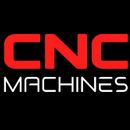Understanding CNC in the Human Body: Mechanisms and Applications

What is CNC in the Human Body?
When we talk about CNC in the context of the human body, we’re discussing a fascinating intersection of technology and healthcare. CNC, or Computer Numerical Control, machining is a pivotal process used in the manufacturing of precision medical implants that are essential for improving patient outcomes and enhancing the quality of life.
The Role of CNC machining in Medical Implants
CNC machining has revolutionized how medical implants are produced, ensuring a high degree of precision, reliability, and customization. This technology plays a particularly critical role in creating various types of implants:
- Orthopedic Implants: CNC machining is central to crafting accurate and durable hip and knee replacement implants. These components require meticulous engineering to fit seamlessly into the human body and withstand physical stresses while maintaining functionality.
- Dental Implants: Likewise, CNC technology is used in the production of dental implants, which need to be customized to match the unique anatomy of each patient's mouth for both cosmetic and functional results.
- Spinal Implants: For spinal corrections and supports, CNC machining produces parts that assist in stabilizing and improving spinal alignment with exact precision.
Why CNC Machining is Important for Medical Implants
The high standards required for medical implants demand a manufacturing process that provides superior quality and consistency. CNC machining offers several key advantages:
- Precision: The process allows for the creation of parts with extremely tight tolerances, which is crucial for implants that must integrate with human tissue or bone.
- Customization: No two human bodies are the same; CNC machining permits the customization of implants to meet individual patient needs, increasing the likelihood of successful outcomes.
- Durability: Materials used in CNC machining, such as titanium and surgical-grade stainless steel, ensure that implants are biocompatible and durable, offering long-lasting solutions in medical applications.
The Future of CNC Machining in Medicine
The role of CNC machining in the medical field is expected to grow as technology continues to evolve. Advances in software, materials, and machine precision will open the door to even more complex and personalized medical solutions.
Conclusion: CNC machining is a cornerstone of modern medical technology, crucial in the development of high-quality medical implants. Its ability to produce custom, precise, and durable solutions makes it an invaluable asset in healthcare. As technology progresses, the applications of CNC in medicine are likely to expand, further transforming the landscape of medical treatment and patient care.


